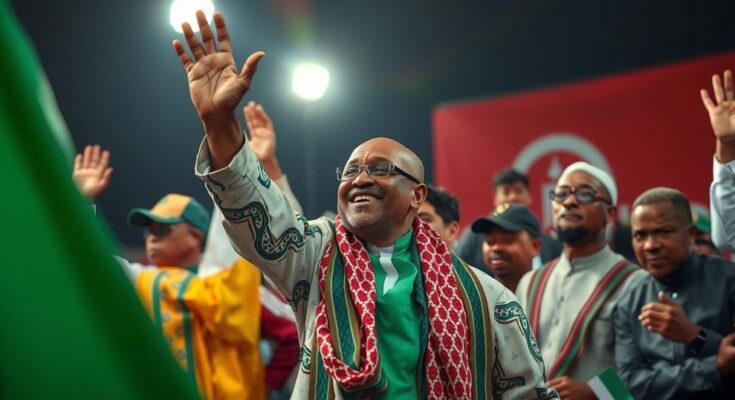Abdirahman Mohamed Abdullahi of the Waddani Party won the Somaliland presidential election with over 50% of the vote. This significant victory comes amid calls for economic reforms and improvement of relations with Somalia and Ethiopia, following a politically charged campaign. The election reflects Somaliland’s quest for stability and progress despite its lack of international recognition.
In a significant political development, Abdirahman Mohamed Abdullahi of the Waddani Party has emerged victorious in the recent presidential election held in Somaliland, a self-declared independent region of Somalia. According to the electoral commission, Abdullahi garnered more than 50% of the votes. This marks a pivotal moment, as the 69-year-old leader has previously served as Somaliland’s parliament speaker in 2005, and his party advocated for democratic reforms alongside initiatives to combat youth unemployment and revitalize the economy. Conversely, the incumbent president, Muse Bihi Abdi of the Kulmiye Party, who has been in office for seven years, secured just over 30% of the votes, having campaigned for Somaliland’s international recognition during his tenure. The election faced delays, attributable to funding issues and various logistical challenges, yet it demonstrates the resilience of Somaliland’s political system, which has operated independently of Somalia since declaring independence in 1991 amidst conflict. Despite lacking international recognition, Somaliland has developed its own governance, currency, and security frameworks, distinguishing itself from Somalia’s ongoing instability. Recently, the region’s agreement with Ethiopia, which involves granting access to the Indian Ocean in exchange for political recognition, has stirred tensions, prompting calls for economic benefits from the deal to be explicitly outlined. Analysts note that the new leadership hopes to bolster economic opportunities while fostering relations with Somalia. Former Somali Prime Minister Hassan Ali Khaire expressed optimism regarding the new president’s potential to guide Somaliland toward peace and development. The president of Djibouti also extended congratulations to the president-elect, signaling a hopeful outlook for regional diplomacy and cooperation. This election not only marks a shift in leadership but also holds implications for Somaliland’s future direction amid pressing economic and social challenges.
Somaliland, which declared independence from Somalia in 1991, has established a distinct political and economic identity despite not receiving international recognition. The region has been noted for its relatively stable governance structures compared to Somalia, which continues to grapple with security issues. The recent presidential election reflects the ongoing democratic aspirations within Somaliland, as well as the complex regional dynamics exacerbated by agreements with neighboring countries such as Ethiopia. The leadership transition presents new opportunities and challenges in addressing economic concerns and enhancing relations both domestically and with the broader international community.
The recent electoral victory of Abdirahman Mohamed Abdullahi highlights a pivotal shift in Somaliland’s political landscape, emphasizing the electorate’s desire for change and effective governance. The new administration faces the dual challenge of addressing economic issues and fostering constructive relations with Somalia and Ethiopia. As noted by observers, this transition could signal a renewed commitment to peace, democracy, and regional cooperation.
Original Source: www.seattletimes.com




